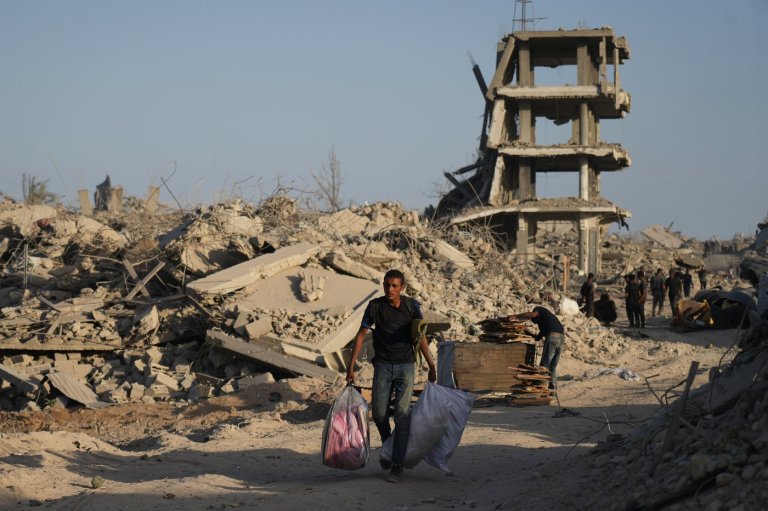Over 1,400 were killed in sectarian violence in coastal Syria in March, committee says
DAMASCUS, Syria (AP) — More than 1,400 people, most of them civilians, were killed in several days of sectarian violence on Syria ’s coast earlier this year, a government committee tasked with investigating it said Tuesday.
The violence was the first major incident to emerge after the ouster of longtime President Bashar Assad in December. It said there was no evidence that Syria’s new military leaders ordered attacks on the Alawite community there, to which Assad belonged.
Nearly 300 people suspected of committing crimes including murder, robbery, torture and looting and burning of homes and businesses were identified during the four-month investigation and referred for prosecution, and 37 people have been arrested, officials told journalists. They didn’t say how many suspects were members of security forces.
The committee’s report came as Syria reels from a new round of sectarian violence in the south, which again has threatened to upend the country’s fragile recovery from nearly 14 years of civil war.
The violence on the coast began on March 6 when armed groups loyal to Assad attacked security forces of the new government, killing 238 of them, the committee said.
In response, security forces descended on the coast from other areas of the country, joined by thousands of armed civilians. In total, some 200,000 armed men mobilized, the committee said.
As they entered neighborhoods and villages, some — including members of military factions — committed “widespread, serious violations against civilians,” committee spokesperson Yasser al-Farhan said.
In some cases, armed men asked civilians whether they belonged to the Alawite sect and “committed violations based on this,” the spokesperson said.
The committee, however, found that the “sectarian motives were mostly based on revenge, not ideology,” he said.
Judge Jumaa al-Anzi, the committee’s chair, said that “we have no evidence that the (military) leaders gave orders to commit violations.”
He also said investigators had not received reports of girls or women being kidnapped. Some rights groups, including a United Nations commission, have documented cases of Alawite women being kidnapped in the months since the violence.
There have been ongoing, although scattered, reports of Alawites being killed, robbed and extorted since the violence. Tens of thousands of members of the minority sect have fled to neighboring Lebanon.
There have been echoes of the coastal violence in the new clashes in southern Sweida province over the past two weeks.
Those clashes broke out between Sunni Muslim Bedouin clans and armed groups of the Druze religious minority, and government security forces who intervened to restore order ended up siding with the Bedouins. Members of the security forces allegedly killed Druze civilians and looted and burned homes. Druze armed groups launched revenge attacks on Bedouin communities.
Hundreds have been killed, and the U.N. says more than 128,500 people have been displaced. The violence has largely stopped as a ceasefire takes told.
The committee chair said the violence in Sweida is “painful for all Syrians” but “beyond the jurisdiction” of his committee.
“Time will reveal what happened and who is responsible for it,” he said.
___
Associated Press writer Malak Harb in Dubai, United Arab Emirates, contributed to this report.
Join the Conversation!
Want to share your thoughts, add context, or connect with others in your community?
You must be logged in to post a comment.
















